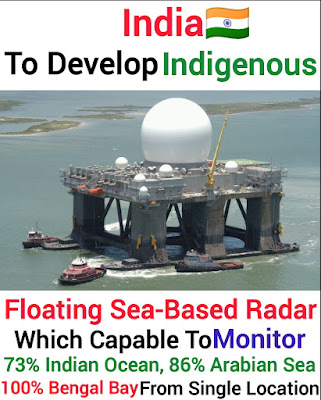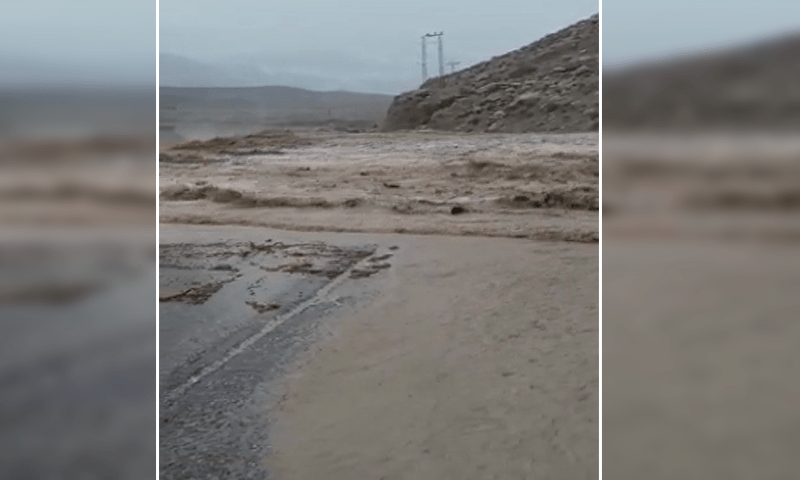India to construct Floating Sea Based Radar Station to monitor entire Indian Ocean
India is venturing into the development of a floating sea- based radar system as part of its Ballistic Missile Defense (BMD) program. < p>The project aims to bolster the nation's defence capabilities by establishing an advanced radar system that can detect and track ballistic missiles, differentiate between warheads and decoys, update ground- based interceptors in real time, and evaluate the effectiveness of missile intercept attempts.
This strategic move comes as India completes Phase-I of its BMD system, with land-based installations currently providing security to key regions, including the National Capital New Delhi and India's Commercial Capital Mumbai.
To enhance its BMD system further, India is investing in the development of Very Long Range Radars (VLRR) with unparalleled capabilities. These cutting-edge radars can scan vast distances, even up to 4,000 kilometres away, and precisely detect objects in both space and airspace. With such capabilities, the VLRRS play a crucial role in providing early warning and situational awareness, essential elements in countering potential threats.
While land-based radar systems have their advantages, they are inherently vulnerable due to their fixed locations.
To address this concern, India has set its sights on sea-based radar systems. These radar systems will be mounted on semi-submersible vessels, providing the flexibility to move around strategically in the open sea, away from the reach of rival missiles. This mobility and versatility will make it more challenging for adversaries to neutralize the radar system, ensuring uninterrupted surveillance and tracking capabilities.
The sea-based radar system will serve as a vital component of India's BMD architecture, complementing existing land- based installations. By integrating these platforms, India aims to establish a comprehensive and robust missile defence shield to protect its territory from potential threats. The sea-based radar will be instrumental in providing crucial tracking information to optimize the effectiveness of ground- based interceptors, increasing the chances of successful missile defence.
The strategic decision to invest in sea-based radar systems demonstrates India's commitment to advancing its defence technology and safeguarding its national interests. As the security landscape evolves, the ability to detect and respond to ballistic missile threats becomes increasingly crucial. By enhancing its BMD system with cutting-edge technology and innovative approaches, India showcases its determination to stay ahead in the realm of missile defence.



Comments
Post a Comment